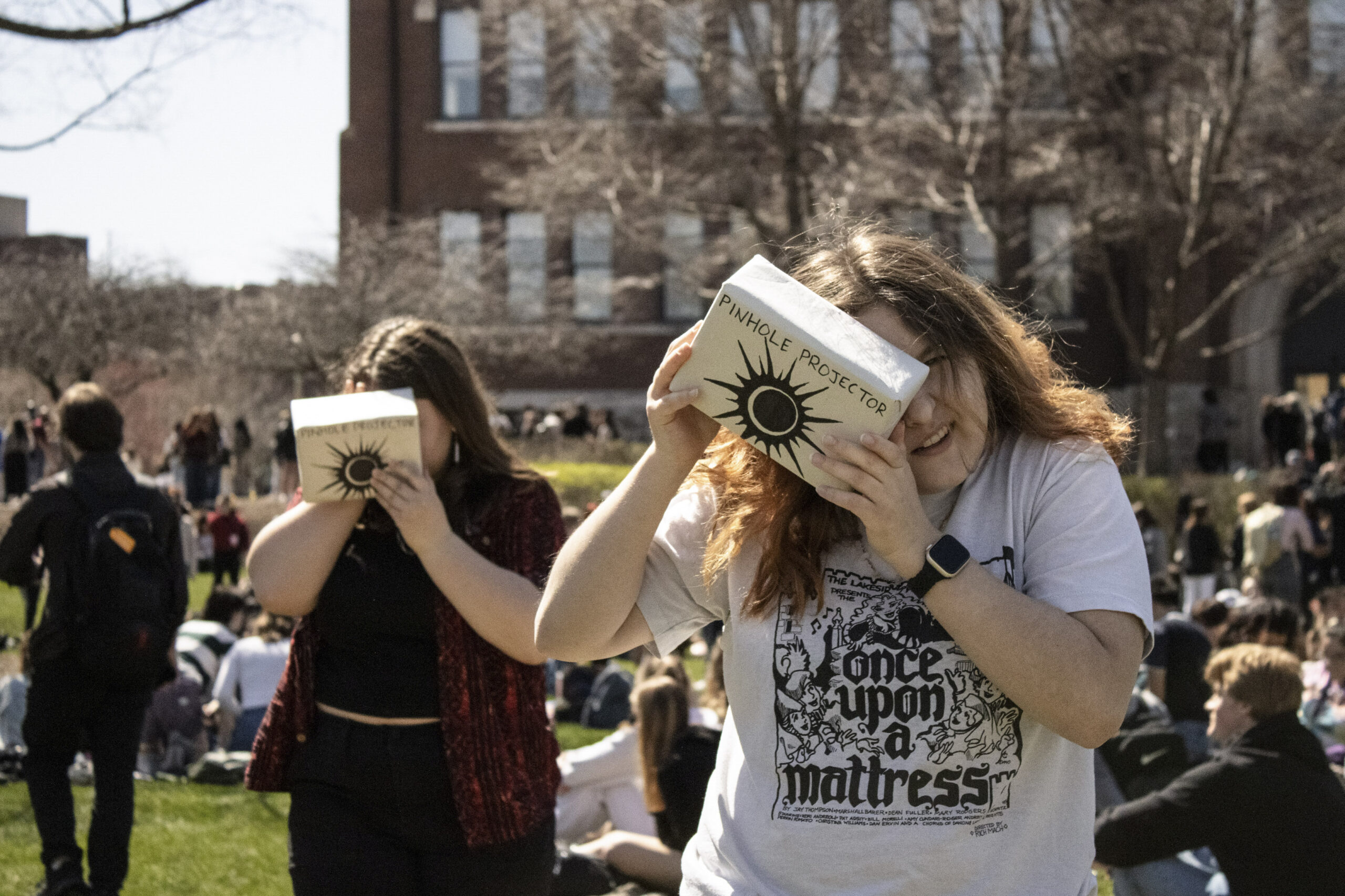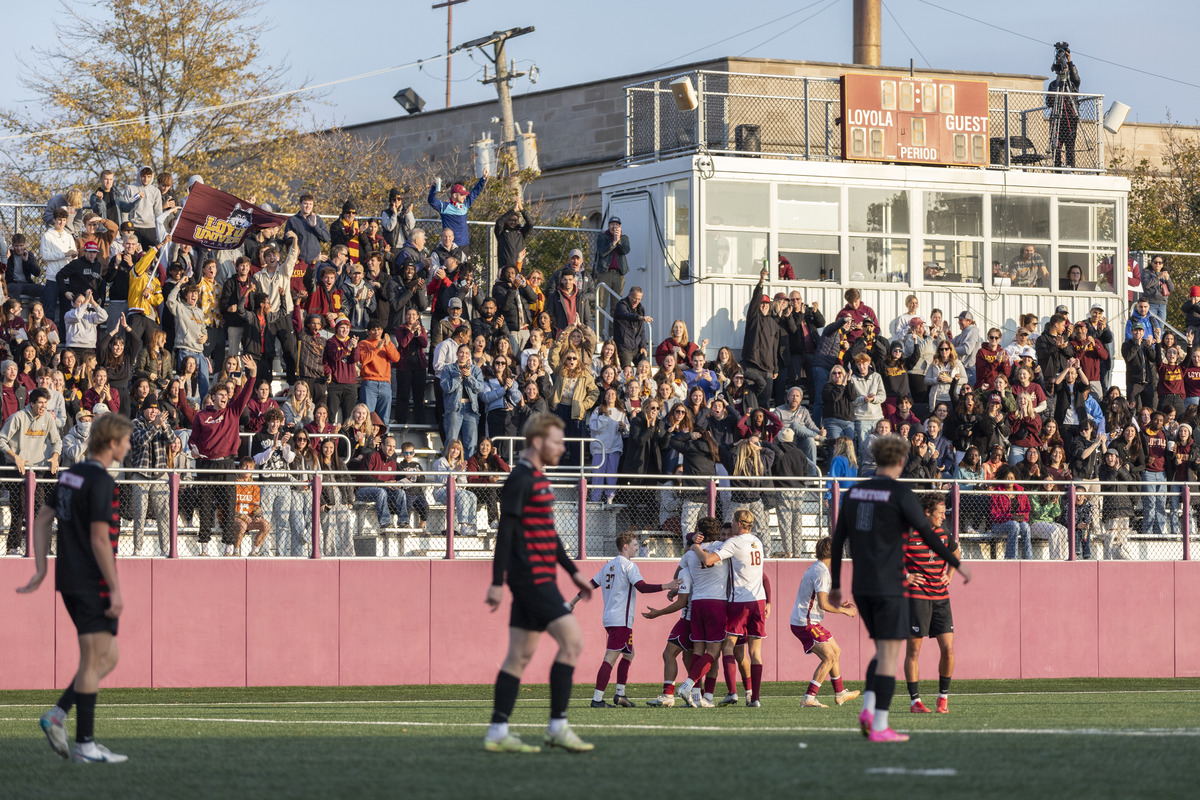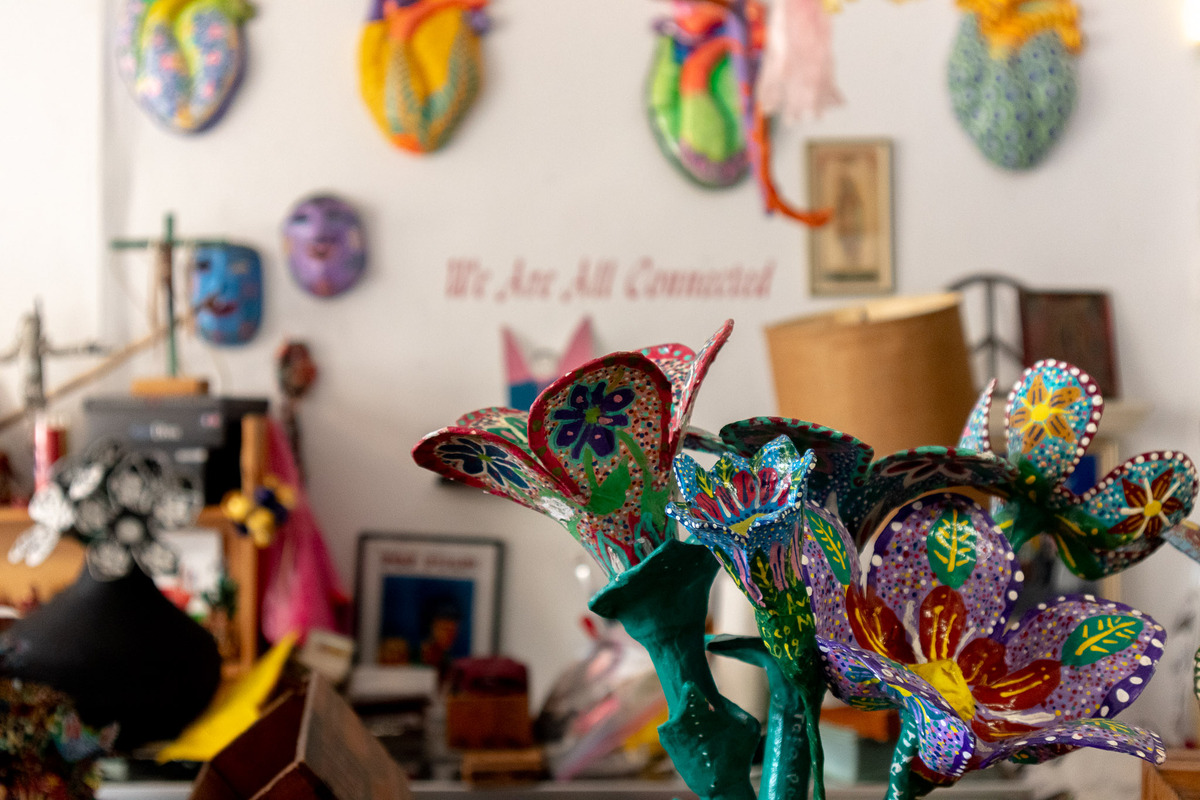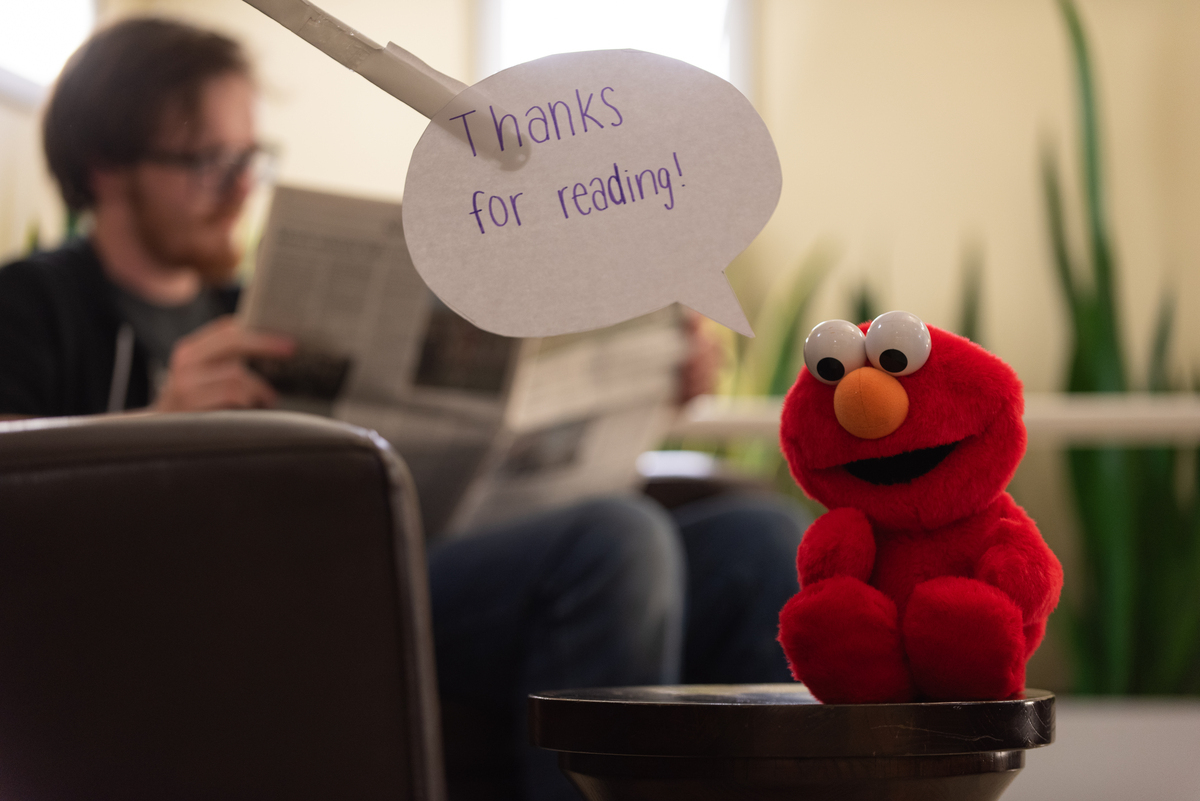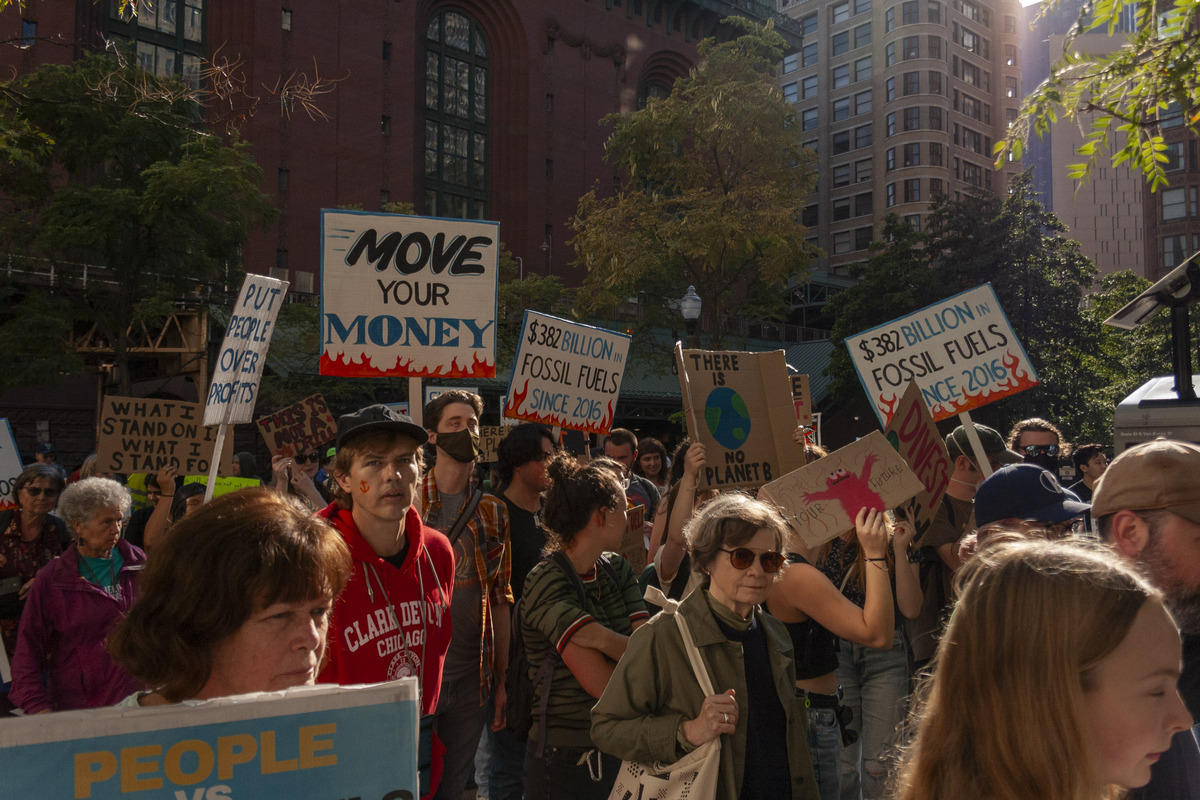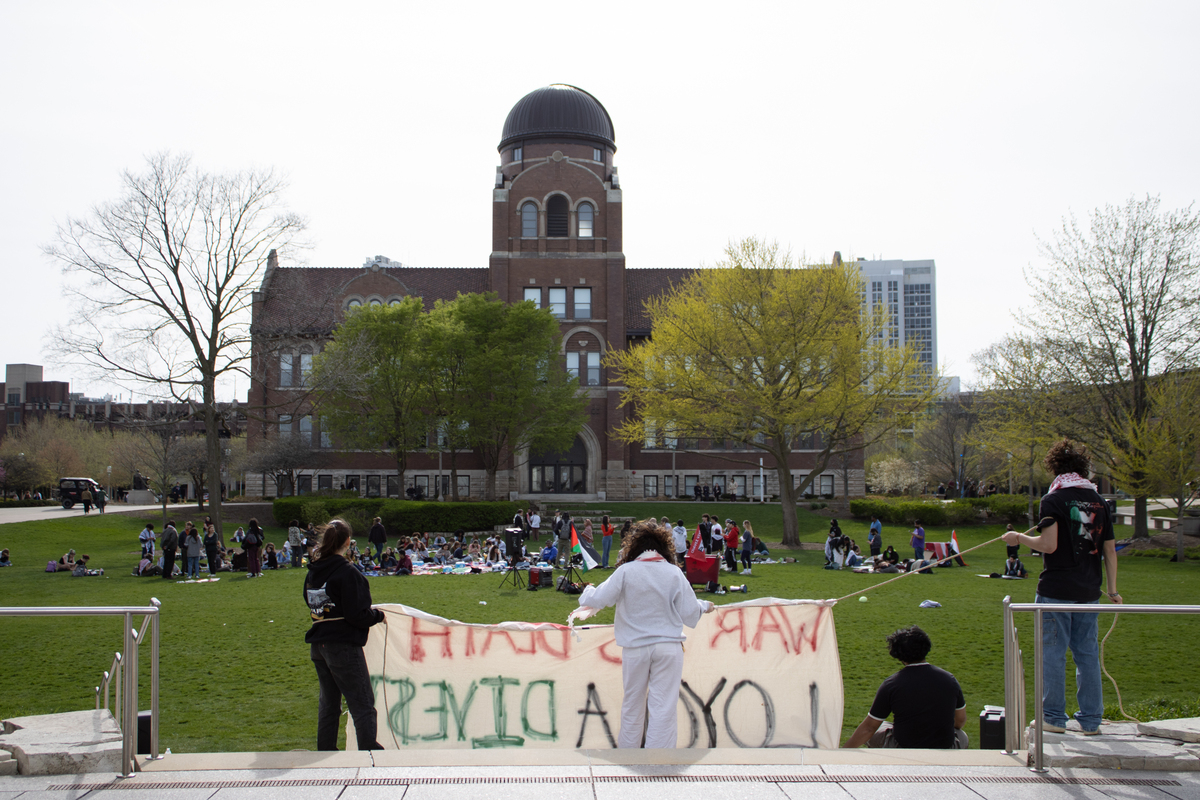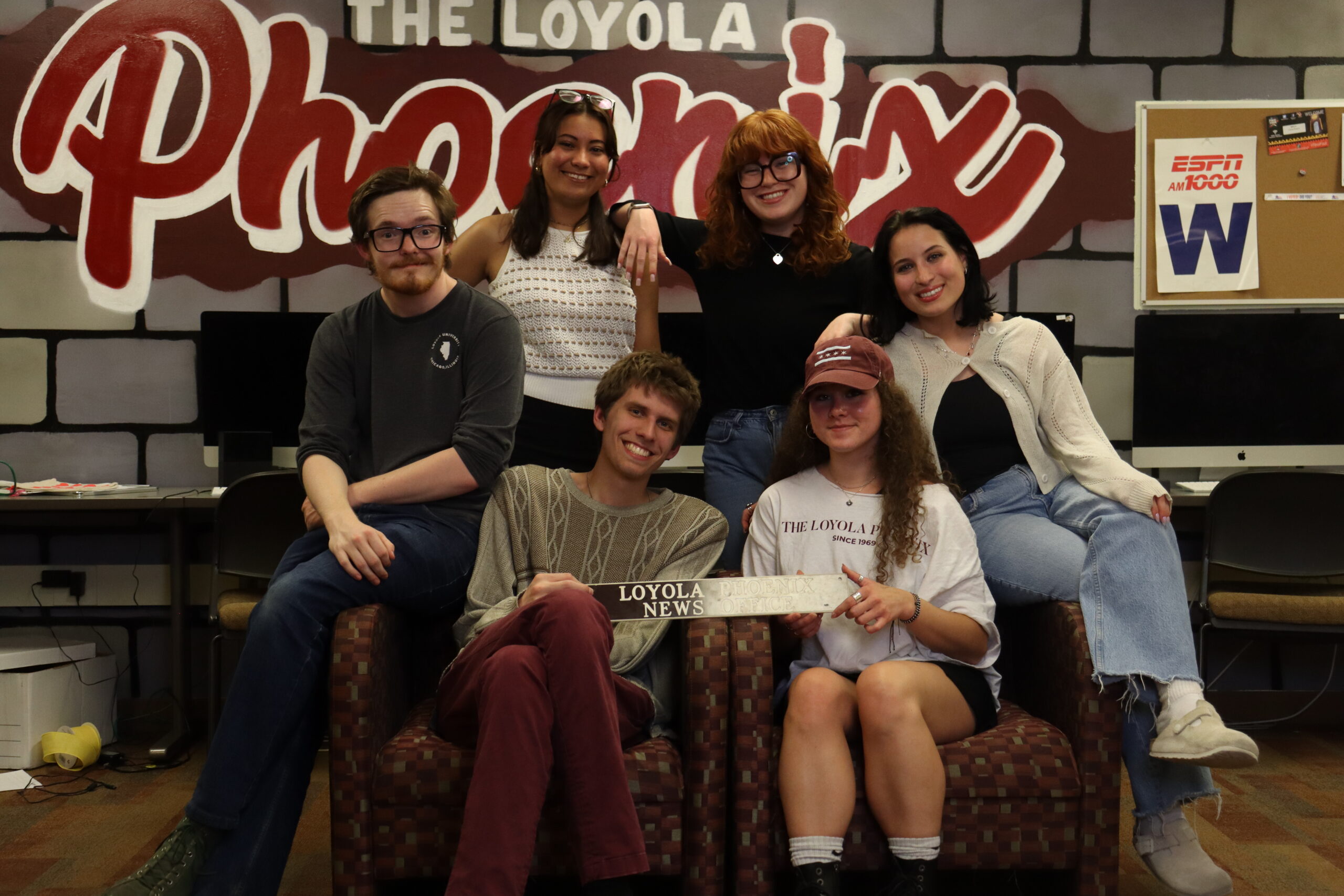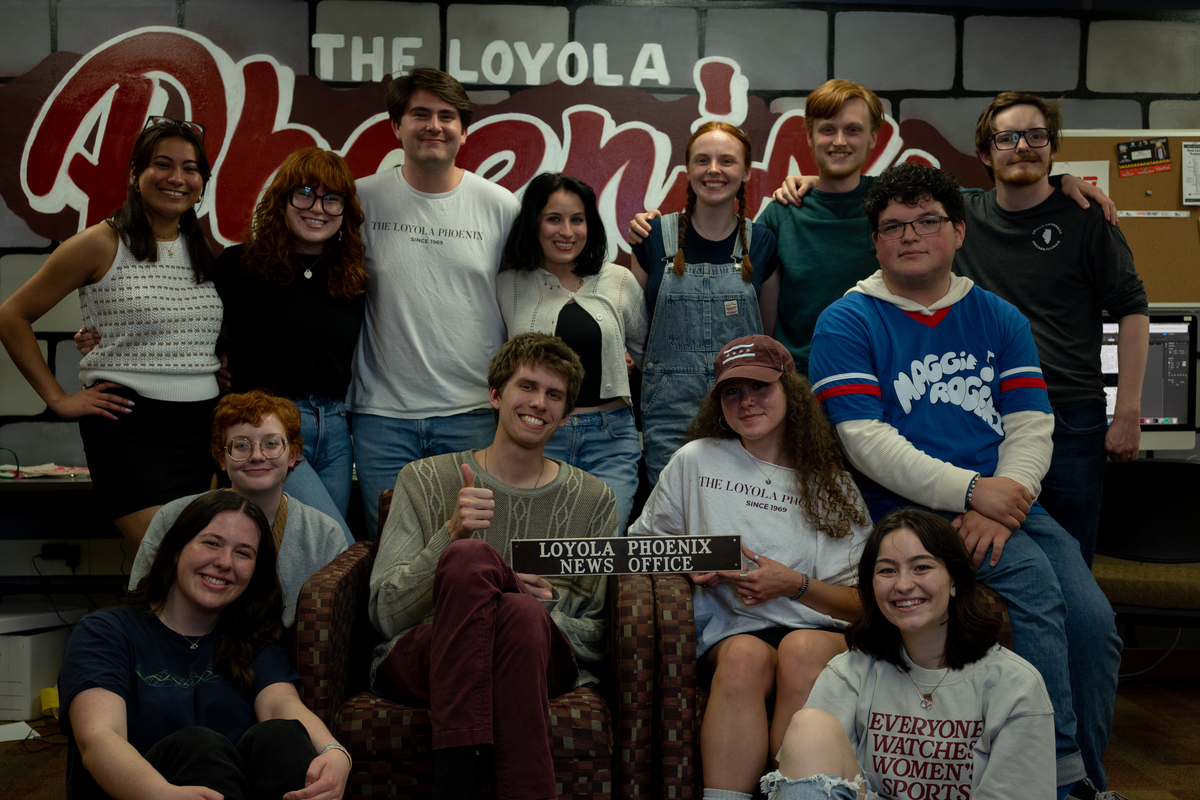The brand-new center has yet to officially open but hosted two events near the end of Black History Month
New Center for Black Student Excellence Hosts First Two Events
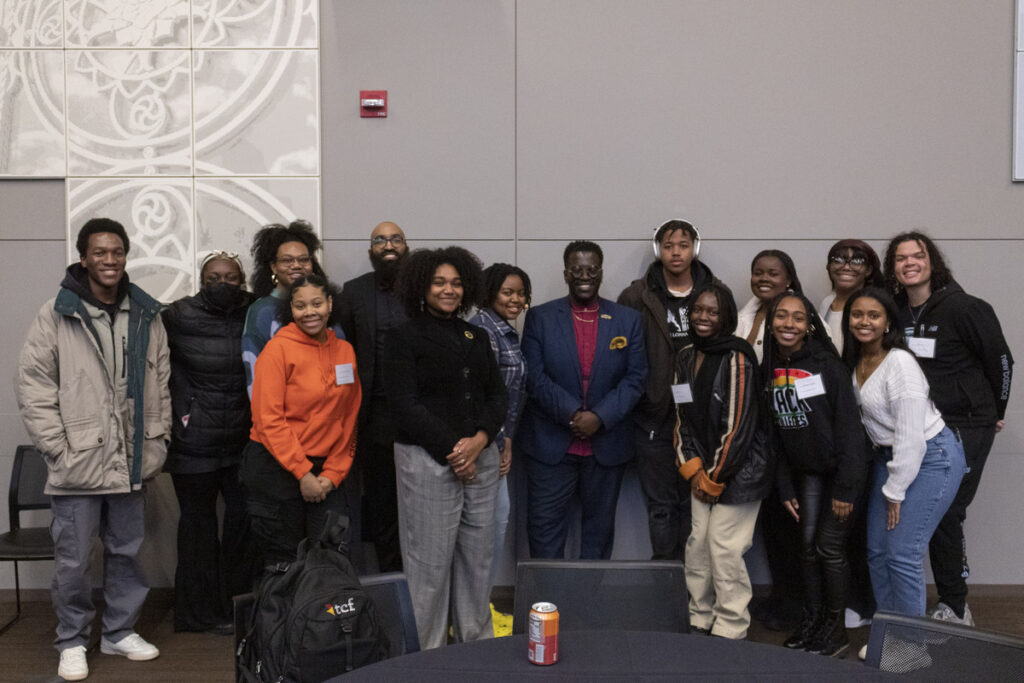
Content warning: This story includes mention of police brutality and murder
The newly created Center for Black Student Excellence (CBSE) hosted its first two events near the end of Black History Month with presentations on Black joy and the history of racial violence.
The Feb. 23 event, entitled “Black Joy as Resistance,” was a conversation with Derrick Marcell Fleming Jr. or “Derrick the Gent,” an empowerment and lifestyle speaker. The event was held in the Damen multipurpose room and discussed topics such as identity, activism and social media.
CBSE’s second sponsored event was a dialogue with three of the co-creators of the Red Summer Project Feb. 28 in the Damen Cinema. The project was a month-long tour in 2019 that marked the centennial anniversary of the Red Summer of 1919, a time of increased racial violence and attacks towards Black communities across the U.S. in 1919.
Rapper Heavy Crownz, artist Mashaun Ali Hendricks and photographer Paris Williams spoke about the Red Summer Project, a cross-country road-trip they conducted to raise awareness for the Red Summer and modern day racial violence through live rap performances, coloring books and peace circles, according to Hendricks’ project website.
CBSE is the newest part of Loyola’s Anti-Racism Initiative (ARI) which was launched in Fall 2020 following the murder of George Floyd in May 2020, according to the Associated Press. The Center aims to be a central hub for supporting Black students in the Loyola community by fostering a sense of belonging and working with campus partners to identify resources, opportunities and practices for students, according to the CBSE website.
While CBSE isn’t officially open yet, Cory Barnes was hired in June as the inaugural director. On staff, 2022 Loyola graduate Morgan Ransom is the program coordinator with two student employees, according to Barnes.
He said CBSE is currently in a conceptual period while it works on a five-year plan, including hiring more staff, creating a mission statement and finding a physical office space.
“The Center was really designed to serve as a hub, a holistic support service hub,” Barnes said. “So the services we offer are really kind of serving as a one-stop shop in connecting students to resources that are already here. And so some of those services are connecting students with financial aid, scholarship offers and internships.”
The Center joins several other Loyola organizations which strive to make Loyola more accessible and welcoming to minority students. The Office of Institutional Diversity, Equity and Inclusion (OIDEI) focuses more on school-wide DEI work with faculty and staff, according to Barnes. There is also the Institute for Racial Justice which focuses on combating systemic racism on and off Loyola’s campuses through monitoring national trends, writing grants and policies and performing outreach, Barnes told The Phoenix.
“We really center our work solely on supporting our students,” Barnes said. “Now, that’s not necessarily a limitation. We have the ability to branch-out, but we really want to focus internally on providing holistic support and cultivating belongingness and connectedness with our Black students here at Loyola and making sure that they feel like they belong.”
At the Feb. 23 event, Fleming talked about his past work experiences during the event. He said he worked as a White House staffer in the Obama Administration, an Academic Coach & Youth Development Specialist for Metropolitan Family Services, a Chicago based social services company and currently as the Managing Director of Strategic Engagement for Chicago Scholars, the largest Chicago college access and career training program.
“Derrick the Gent is a young black boy from the South Side of Chicago,” Fleming said during the discussion. “Outside of that, I also identify as a Black, gay, Christian man. I carry all those identities very, very well, and I care a lot about those identities and how they intersect and what it means to be an authentic person in the world that we currently live in.”
The first half of the nearly hour-long presentation was an interview-like conversation where Ransom asked Fleming several prepared questions about his life and views. Some of the topics addressed included activism, living a balanced life, becoming your authentic self, social media and finding a personally liberating ‘a-ha’ moment.
Fleming said his own ‘a-ha’ moment came after scrolling through social media one day at work in 2019 and seeing the negative reactions to a post about how Alicia Keys’ son wanted to use nail polish.
“The way social media ate her son up, who was only eight years old, about wanting to wear fingernail polish,” Fleming said. “And if you really listen to what she said it had nothing to do about sexual orientation and everything about just young Black boys wanting to be creative. So I went on social media and declared to my world that I’m a Black, gay man who gets his nails done every two weeks.”
Students and audience members could also ask questions towards the end of the presentation through a QR code or by taking a microphone and speaking directly with Fleming.
“They asked some amazing questions,” Fleming said to The Phoenix. “I appreciated the questions more that they asked me directly, but I love the energy that we got. So I appreciated the Q&A and the openness of the students.”
The Red Summer is the name given to the period of elevated violence and attacks against Black people and communities throughout the U.S. according to PBS. The catalyst event which sparked the violence in Chicago was the death of Eugene Williams, a Black teenager, after he swam across the imaginary line separating the white and Black beaches and was stoned and drowned, according to History. Eventually over 500 people were injured, 60% of whom were Black, and 1,000 Black families’ homes were burned by rioters.
The Red Summer Project in 2019 was meant to commemorate the events of 1919 and acknowledge the circumstances and heightened racial tensions which led to them and how they are still present, according to Hendricks.
“Everything that we do is about sustainably transforming our communities,” Hendricks said. “I don’t mean changing because change is like scrambled eggs and hard boiled eggs, it’s still an egg. Transformation is the egg and like fruit, it’s like a whole new way. It’s just completely different. So a sustainable transformation through our artwork.”
During the Feb. 28 event, the three guests first took turns introducing themselves, before Williams led the audience in a coloring session, followed by a viewing of the trailer and first episode from the documentary made of the Red Summer Project.
Williams founded MobiColor, a coloring book and creative studio which incorporates different elements like pop culture, fashion and music into its designs to fulfill the purpose of relaxation while coloring while also enjoying creativity and culture, according to the MobiColor website.
“I saw that there was a gap,” Williams said. “There was nothing that reflected culture that I was consumed by and also appreciated. So I said ‘Hey there’s the opening, let me be able to create something that allows me to actually enjoy coloring and spread it to people.’ So we start doing these things called color sessions.”
The event ended with an acapella rap performance by Heavy Crownz of his song “Grow Sumn”.
“The chorus goes a little bit like, ‘If you’ve been fearing something, it’s time to grow from it.’” Heavy Crownz said. “And what I mean by that is I can’t grow if I’m afraid to go on tour, I can’t meet people with different perspectives if I’m afraid to leave my comfortable job. It’s hard for me, it’s hard for anyone to grow if you’re in fear. Fear holds us hostage from moving forward, and so I made this song to kind of invite us all, as a call to action, to grow.”
Featured image by Hunter Minne



